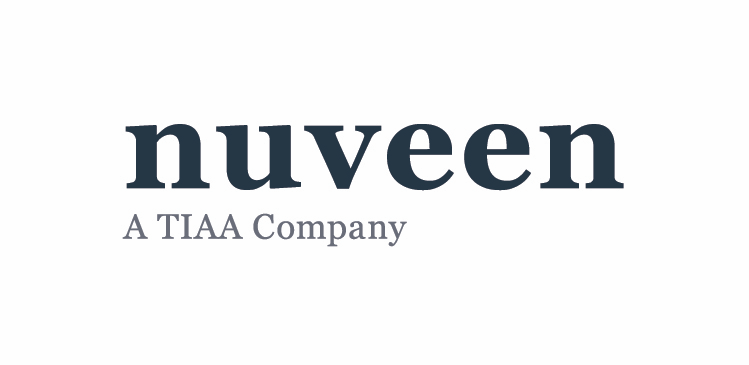Debunking the myths surrounding private credit
Note: This interview was recorded on 8 October 2024. You can watch the video or read an edited summary below.
There are a couple of misconceptions currently clouding the private credit world. Firstly, that it solely focuses on real estate assets or loans. And secondly, that it is illiquid and thus more risky than listed fixed income assets.
However, Kelli Marti, from Churchill Asset Management by Nuveen believes these are myths that need to be debunked, arguing that the universe of private credit is far broader than investors would think - and can include venture capital, distressed and special situation opportunities, equity co-investments, senior secured floating rate investments, junior capital investments, second lien loans, and more - without even accounting for real estate loans.
"The asset class is much wider than perceived in the market, and the specific subcategories of the asset class are nuanced as well," she says.
She also argues that the due diligence involved in selecting companies within private credit portfolios helps reduce risk - despite the asset class being "illiquid" in that the opportunities are private.
"We're spending weeks analysing these borrowers and assessing these investment opportunities," Marti says.
"While the borrowers are typically smaller from an earnings perspective than those in the public markets, we don't view these assets as having more risks because... selectivity is about 5% of the asset opportunities that we see. So again, smaller borrowers, but they're hand-selected to be what we view to be the most positive performers in the asset class."
As part of Livewire's 2024 Alternatives in Focus series, Livewire sat down with Marti to learn more about the risks and opportunities she is seeing in the asset class today, why the asset class remains attractive in a rate cutting cycle, and an example of an opportunity the team has recently invested in.

What is private capital?
Broadly speaking, private capital is a loan transaction between a non-bank lender and a company or specific asset. Private capital, or private credit as it's known in Australia, is not publicly traded - so it is not liquid.
"There's no bid-ask, if you will, on a daily basis for these assets. They're typically going to be 'buy and hold' assets," Marti explains.
Marti adds that private credit, unlike its publicly listed counterpart, isn't cyclical - and notes that the asset class tends to have very low volatility.
"While you see a volatile nature to public equities and public loans based on headlines, supply and demand, imbalance or technicals, the private credit space has much lower volatility, and that's one of the primary attributes of the asset class that's really attracting investors to it today," she says.
She also notes that the asset class can provide investors with income, low volatility, and low correlation to public assets and should be viewed as a long-term tactical portfolio allocation with attractive risk-reward potential.
Why private credit remains attractive in a new interest rate cutting cycle
The market currently expects the US Federal Reserve's cash rate to continue on its path south over the next two years. It comes after the Fed's surprise 50 bps rate cut back in September.
"We are seeing that flow through into the underlying base rates of the assets that we're underwriting. And the expectation into 2025 is those rate cuts will continue," Marti says.
"We've had the Secured Overnight Financing Rate (SOFR) or our base rate under underlying assets sit at about 530 basis points for many quarters now. We're now starting to see that come below 500 basis points currently. And again, the expectation is we're going to see further declines into 2025."
Yields in private credit are comprised of three elements, Marti explains, including the base rate - in this case, SOFR, the base rate plus the spread on the underlying asset, and a slight discount when agreeing to the loan.
"Those three elements can vary based on market conditions, but the main driver of a decline in yield in the current environment will be that decline in the SOFR or the base rate," Marti says.
Historically, long-term yields generated by senior secured debt, for example, have ranged between 6-7.5%. Today, given where the SOFR is today, these assets are earning about 10.5%.
"As SOFR declines, we will start to see that 10.5% yield environment start to decline as well, but it's still a very attractive investment horizon," she adds.
An example of an opportunity
When looking for opportunities, Marti and her team are on the hunt for quality management teams, and competitively positioned companies - particularly those with market-leading positions, with strong financial histories.
"As you're underwriting the business, you want to get comfortable with their historical earnings, what their competitive advantage is, what makes them different in the market, what's the private equity sponsor's thesis? What do they see as the ability to improve the operational performance of the business? And is the business subject to cyclicality?" She says.
Churchill Asset Management tends to avoid cyclical businesses as it can be difficult to underwrite projected cash flows, Marti adds.
In private equity sponsors, Marti and her team typically rely on firms where they have built a foundation of trust.
"We get to know these equity sponsors, we spend time with them, we invest in some of their companies, we know what their track record looks like, we know how they act post-close after the LBO [leveraged buyout] is completed and whether they continue to support their portfolio companies," she says.
For example, Churchill Asset Management recently financed a company that makes dental equipment.
"This company provides that entire packet of instruments, if you will, that are used in a normal dental cleaning," she explains.
"It has recurring revenue, because these are consumable products, certainly dental visits are not subject to cyclicality, and importantly a management team that was very strong operationally as we looked at the business - coupled with a private equity sponsor that we had a long-term track record and relationship with that we knew and trusted."
The case for alternatives in your portfolio
Private credit is included within the "alternatives" bucket of a portfolio. Allocations to private credit within this part of the portfolio can vary depending on whether an investor subscribes to the 60:40 rule or another allocation strategy.
Marti notes that she's seen some investors allocate up to 10% of their portfolios to alternatives. However, she argues that as education surrounding alternatives improves, the momentum and volume of flows in the asset class will continue.
Timecodes
- 0:00 - Intro
- 0:26 - What is private capital?
- 0:57 - Does private capital have a cycle?
- 2:06 - Will the momentum in private markets continue?
- 3:18 - Misconceptions of private credit
- 5:27 - Risks investors need to be aware of
- 6:28 - Interest rate outlook and what this means for private credit
- 7:57 - Tightening spreads and competition in private credit
- 8:53 - How Churchill Asset Management identifies opportunities
- 10:44 - An example
- 12:13 - Return and income outlook for private credit
- 13:39 - Where private capital sits within the portfolio
Learn more about the Nuveen Churchill Private Credit Income Fund here.

3 topics
1 fund mentioned


